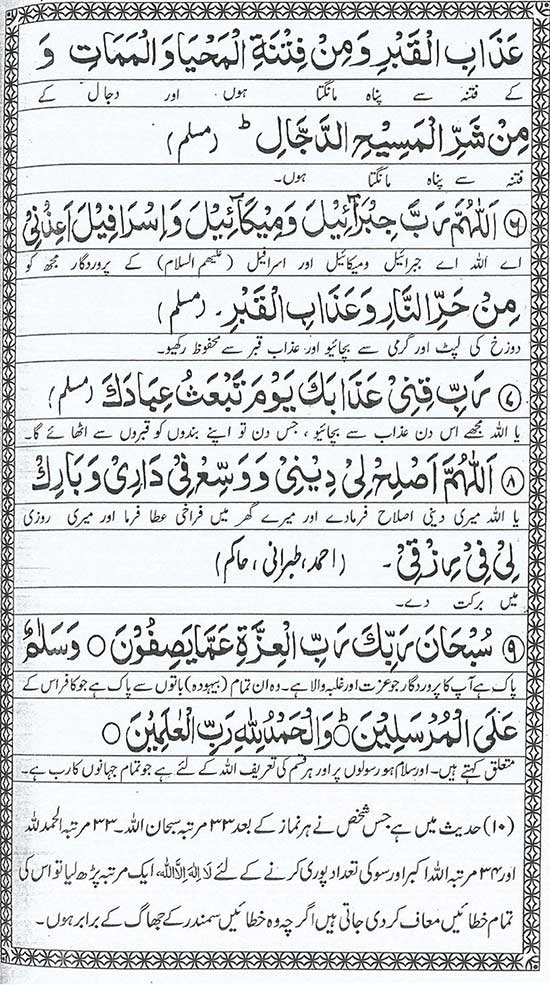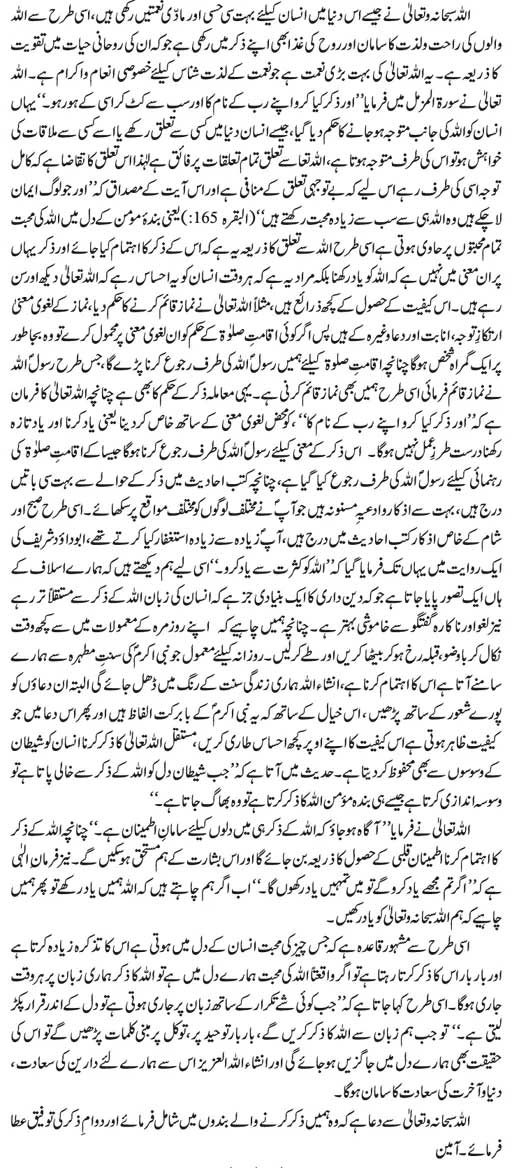

Prophet Muhammad (pbuh) – A Perfect Human Being In All Respects
We always stress that Muhammad (peace be upon him) was a human being who experienced all that a person may experience in life. However, he was chosen by God to be His messenger to mankind, bringing them God’s final message and providing them with practical guidance on how to conduct their lives in accordance with the teachings of God’s message.
We have detailed descriptions of what he looked like, but what is more important to us is to understand his character and how he behaved with other people. From these descriptions we gather that he was a rare example of Arab manly charm who combined all aspects of an attractive physical and personal appearance.
He was handsome, loveable, awe-inspiring, modest, loyal, loving and caring. He was very happy when he brought a smile to anyone, but his happiness would be greater if that person was a child, a helpless woman or an unfortunate elderly person.
The Prophet combined all this with exceptional physical strength and vigor. He consistently overcame strong people in combat. When he was still in Makkah, a man who was renowned for his strength and wrestling ability told Prophet Muhammad that he would believe in him as God’s messenger if he could beat him in wrestling.
The Prophet accepted the challenge and beat the man. The latter tried to find excuses and wanted the match to be restarted. The Prophet beat him again. Moreover, Prophet Muhammad (peace be upon him) could ride an unsaddled horse and easily tame and control him.
However, he did not use his physical strength to press any advantage over others, or to gain their love or respect. He wanted people to take everything easily and live with him as they live with a dear friend. With members of his family, he wanted life to run smoothly and showed them that he was one of them. He would even compete with those he loved in a pleasant way.
Ayesha reports that she was accompanying the Prophet on a journey when she was still young and thin.
“The Prophet told his fellow travelers to go ahead of them. He then said to me: Shall we race? We raced, and I won. He said nothing. Later, when I had put on some weight, we were on another trip, when he told other people to march ahead. He then said to me: Shall we race? We raced and he won. He laughed and said: We thus draw, one race each.” Thus, he took such things so lightly, even though he was approaching sixty years of age, and he was the head of a powerful state where he enjoyed unparalleled popular love.
Yet he would visit his servant’s family and extend his kindness to them. Anas ibn Malik was a servant at the Prophet’s home for 10 years.
The Prophet visited Anas’ home on numerous occasions. Anas reports: “The Prophet visited my mother and saw that my young brother, Abu Umayr, was sad. He asked her: ‘What grieves Abu Umayr?’ She told him that he had a little bird, which died that day. The Prophet asked my brother: ‘Abu Umayr, where is the little bird gone?’ He asked him the same question every time he saw him.
This incident tells us much about the Prophet’s kindness to all people. He visits his servant’s people in their home, and inquires about the reason for a child’s sadness, comforting him about the loss of his bird, and remembers his feelings every time he sees the child.
– by Adil Salahi
- August, 13
- 3286
- Prophet Character
- More
10 Things To Hand Down To Your Daughter
* Knowledge of and love for Allah and the Deen. This is one of the most precious and enduring gifts you can pass down to your daughter, one that will benefit her in this life and the next.
* Memorization of the Qur’an. No matter how little you have memorized yourself, push your daughter to memorize as much she can. Encourage her and help her to revise. It will stand her in good stead in her life and will be a source of reward for you after your death as well.
* A good example of Muslim womanhood. Most girls look to their mothers for guidance. Embody the characteristics of a strong, faithful Muslimah and she will be inspired to follow your example.
* A sense of self-worth and self-esteem. Instill a sense of confidence in your child by encouraging her skills, talents and personality to develop. Make her feel secure in her identity and show her that she is loved and appreciated. This will have a positive impact on her future relationships and how she interacts with the world.
* A sense of modesty. Instill a love for Hijab in your daughter and encourage her to be modest, never boastful or conceited, in all areas of her life.
* Your language. If you speak Arabic, be sure to teach it to her so that she has the key to the understanding of the Qur’an. Also, if you have a mother tongue or speak a second language yourself, pass it on: a second or third language is always an asset, whether in study, work or social environment.
* A skill that you have. If you are an avid gardener, knitter or love painting, pass your skill onto your daughter. With so many ‘traditional’ skills being lost in today’s fast-paced world, you owe it to her to share your knowledge and pass it on to the next generation.
- August, 12
- 3775
- Human Rights
- More
The Intensity Of The Suffering Of The People Of Hell
The Fire is an intense punishment, in which there are different types of torment, to escape which people would give the dearest possessions that they own:
“As for those who reject Faith, and die rejecting – never would be accepted from any such as much gold as the earth contains, though they should offer it for ransom. For such is [in store] a penalty grievous and they will find no helpers”. (3:91)
“As to those who reject faith – if they had everything on earth and twice repeated, to give as ransom for the Penalty of the Day of Judgement, it would never be accepted of them. Theirs would be a grievous Penalty.” (5:36)
Muslim reports from Anas ibn Maalik that the Messenger of Allah (saw) said: “One of the people of Hell who found the most pleasure in the life of this world will be brought forth on the Day of Resurrection, and will be dipped into the Fire of Hell. Then he will be asked: O son of Aadam, have you ever seen anything good? Have you ever enjoyed any pleasure?” He will say, “No, by Allah (swt), O Rabb”” (Muslim, Mishkaat al-Masaabeeh, 3/102).
Just a few short moments will make the kuffaar forget all the good times and pleasure that they had enjoyed. al-Bukhaari and Muslim report from Anas ibn Maalik that the Messenger of Allah (saw) said, “On the Day of Resurrection, Allah will say to one whose punishment in the Fire is the lightest, “If you had whatever you wanted on earth, would you give it up to save yourself?” He will say, “Yes”. Allah (swt) will say, “I wanted less than that from you: when you were still in the loins of Aadam, I asked you not to associate anything in worship with Me, but you insisted on associating others in worship with Me””. (al-Bukhaari, in Kitaab ar-Raqaaq, Baab Sifaat al-Jannah wan-Naar, Fath al-Baari, 11/416, See also Mishkaat al-Masaabeeh, 3/102)
The horror and intensity of the Fire will make a man lose his mind, and he would give up everything he holds dear to escape it, but he will never be able to:
“..the sinner’s desire will be: would that he could redeem himself from the Penalty of that Day by [sacrificing] his children, his wife and his brother, his kindred who sheltered him, and all, all that is on earth, so that it could deliver him. By no means! For it would be the Fire of Hell! Plucking out [his being] right to the skull”. (70:11-16)
This horrendous ongoing punishment will make the life of these evildoers one of continual sorrow and pain.
- August, 11
- 3822
- Paradise-Hell
- More
Chund Behtreen Wazaif

There Is Good In Every Event
EVERY event that happens to the Muslim has one sort or another aspect of goodness in it. Allah states that even events that seem to be unfavorable may have a lot of good in them: ” … It may be that you dislike a thing and Allah brings through it a great deal of good.” (Surah 4:19).
Aware of this secret, believers seek goodness and beauty in every event. No seemingly adverse incident, hardship, or mischief ails or worries them. They maintain their composure, whether the experience is insignificant or a serious ordeal. Sincere Muslims even see goodness and Divine purpose in the loss of all their hard earned possessions. They express gratitude to Allah for the gift of life. They have faith that Allah may have protected them from committing an evil act or against too much attachment for possessions.
Accordingly, believers give their most inner thanks to Him because no loss in this world equals the loss in the Hereafter. Loss in the Hereafter means eternal and intolerable punishment (unless Allah wills otherwise). Those who keep themselves occupied with the remembrance of the Hereafter view every event as goodness and beauty leading to the Hereafter.
Those who overcome such ordeals will recognize their weaknesses before Allah and will reconsider how much they are in need of Him. They will turn to Allah with much humility through prayers and remembrance that will bring them closer to Him. This is surely an enormous benefit to one in the Hereafter. These aside, by putting absolute trust in Allah and showing steadfastness, they will earn His pleasure and will be rewarded with eternal bliss.
People should seek goodness and beauty not only in ordeals, but also in daily routines. For example, burning the food one has painstakingly prepared may lead one to take numerous measures that would, by the will of Allah, prevent a more serious accident in the future. A young person might fail the college admission test on which all hopes for the future had been pinned.
People should, however, know that there is goodness in their failure, too; they should be able to think that Allah might have willed them to avoid some adverse circumstances or people and thereby feel pleased with the result. Alternatively, by thinking that Allah has placed in every event many other blessings that are either obvious or beyond the imagination, believers see the beauty of full submission to the guidance of Allah.
People may not always see the goodness and divine purpose behind every incident. Even if this be the case, they know for certain that there is goodness in all events. They offer prayers to Allah to discover the goodness and divine purpose hidden behind everything that happens.
Those who are aware that everything has a purpose in Allah’s creation never use phrases such as “I wish I had not done this” or “I wish I had not said that” and so on. Mistakes, defects, or seemingly unfortunate events essentially include blessings, and each one of them is the trial of destiny. Allah gives important lessons and reminders to humans in the destiny He decrees individually for each person.
For those who can evaluate with insight, there are no mistakes or adversities, but rather lessons, warnings, and wisdom from Allah. For example, a Muslim whose shop burns down will search his or her soul, and will become even more sincere and true in his or her faith, deeming it as a warning by Allah against over-indulgence in worldly goods and attachments.
Consequently, no matter what one encounters in this life, the ordeals will all eventually end. A person who recalls a hardship will be amazed that it is nothing more than reminiscence in the mind. This is also how people recall the scenes from a film. Accordingly, one day will come and the most painful experience will become only a memory, more like the image of a scene from a movie. Only one thing will remain — the attitude a person assumed during the time of hardship and whether Allah is pleased with him or her.
People will not be called to account for their experiences, but rather for their attitudes, thoughts, and sincerity they displayed at the time of these experiences.
Therefore, endeavoring to see the goodness and the divine purpose Allah creates in the situations encountered and taking a positive attitude will bring bliss to believers both in this world and in the Hereafter. No sorrow or fear awaits these believers who are aware of this secret. Similarly, no one, no event can create fear, harm, or distress in this world or in the Hereafter. Allah reveals this secret in the Qur’an: “And whoever follows My Guidance, there shall be no fear on them, nor shall they grieve.” (Surah 2:38)
Abu Hurairah: Companion And A Narrator Of Ahadith
“Abu Hurairah was never tired of looking at the Prophet, whose face appeared to him as having all the radiance of the sun”
“Abu Hurairah, R.A. said: qala rasulu-llahi, sallallahu alayhi wa sallam…”
Through this phrase millions of Muslims from the early history of Islam to present day have come to be familiar with the name Abu Hurairah. In speeches and lectures, in Friday sermons and seminars, in the books of Hadith, seerah and fiqh, the name Abu Hurairah is mentioned in this fashion:
“On the authority of Abu Hurairah (Allah be pleased with him) who said: Allah’s Messenger (peace be upon him) said… “Through his prodigious efforts, hundreds of hadiths have been transmitted to later generations. His is the foremost name in the roll of Hadith transmitters. Next to him comes the names of such companions as Abdullah ibn Umar, Anas ibn Malik, Aíishah (the Prophet’s wife), Jabir ibn Abdullah and Abu Sa’id Al-Khudri, each of whom transmitted over a thousand hadiths of the Prophet.
Abu Hurairah became a Muslim at the hands of At-Tufayl ibn Amr, the chieftain of the Daws tribe to which he belonged. Abu Hurairah’s name was Abdu Shams (Servant of Sun) which changed, after embracing Islam, into Abdur-Rahman (the Servant of the Beneficent). However, he continued to be known as Abu Hurairah, “the kitten man,” literally “the father of a kitten” because he was fond of cats and since his childhood often had a cat to play with.
Abu Hurairah loved the Prophet a great deal and found favor with him. He was never tired of looking at the Prophet, whose face appeared to him as having all the radiance of the sun and he was never tired of listening to him. Often he would praise Allah for his good fortune and say, “Praise be to Allah Who has guided Abu Hurairah to Islam. Praise be to Allah Who has taught Abu Hurairah the Qur’an. Praise be to Allah who has bestowed on Abu Hurairah the companionship of Muhammad (peace be upon him).”
With his formidable memory, Abu Hurairah set out to memorize in the four years that he spent with the Prophet, the gems of wisdom that emanated from his lips. He realized that he had a great gift and he set about to use it to the full in the service of Islam.
O Turner Of Hearts, Turn Our Hearts To Your Obedience
Narrated Abduh Ibn AbdurRahim:
“We went on an expedition to one of the lands of Rome; and among us was a youth of beside whom there was none amongst us more proficient in reciting The Qur’an, and none of us was more knowledgeable in fiqh and inheritance laws than him, one who used to fast the days and stand at night in prayer.
Whilst in our expedition we passed by a fort – of which we were not ordered to stop for – (guarded by many soldiers); and this youth stopped close to the fort as if he was relieving himself. So he looked up the fort and he caught sight of a woman from among the women of the Romans who was looking from that fort, and she amazed him. And as such he desired her, so he talked to her in the Roman language: ‘Tell me the way to get to you?’
So she replied: “For you to become a Christian, then we will open the door for you (to enter the fort); and I am yours.”
And he answered that call of hers, and he entered the fort!
In one narration it says : (The Muslims were not aware of the ongoings except that by the time they realized; he was with her!)
(The narrator continues to say) Consequently we were covered in great distress and encountered hardship in our expedition because of that.
It was as if each of our men took that to be as if it happened to his own child. After some time while on another expedition, we returned and passed by this same fortified town: and there he was with that woman, and the Christians; looking at us (from the fort).
So we said (to him): “O so-and-so what happened to your Qur’an? What happened to your knowledge? What happened to your fasting? What happened to your prayers!”
And there he said to us: “I have forgotten all the Qur’an except Allah’s statement:
“Perhaps (often) will those who disbelieve wish that they were Muslims. Leave them to eat and enjoy, and let them be preoccupied with (false) hope. They will come to know!” (Qur’an, 15:1-2)
Source: Al-Muntadham of Ibnul Jawzee, Taarikh al-Islam of Imam Adh-Dhahabi under the biography of Abduh Ibn Abdur Rahim, Taarikh Al-Dimashq of Ibn Asaakir : 37/379
Lessons:
– The great benefit of lowering the gaze.
– The Importance of fighting the desires, especially the fitna between the opposite genders.
– Loving for your fellow Muslim that which you love for yourself, and hating for him that which you see is harmful to him. (And what is more of a calamity than seeing a Muslim leave the light of belief and choosing the darkness of shirk!)
– The diligence of Satan and his allies in their greatest goal against Muslims – apostasy.
Especially in the times of tribulations; the true colors of people come forth. As you see, indeed she didn’t ask him for wealth or anything else.
– Don’t be amazed by the actions of a person, only Allah knows the reality of the end of a person.
– Don’t be amazed by your own deeds.
– The importance of supplicating for steadfastness, and uprightness in the religion up to the end of one’s life.
Indeed the Prophet (peace be upon him) used to do so, and taught us to do so in the narration:
“O, Turner of the hearts, turn our hearts to Your obedience.” (Musnad Ahmad – authenticated by Al-Albani)
Fazeelat-e-Zikr-e-Elahi

Who Is More Shy?
It is well known that the Prophet (peace be upon him) was extremely resolute in defending Islam and the Muslim community. He would not accept any compromise in matters of faith and would stand firm in resisting any injustice that may be aimed at even the weaker elements in the community. In fact he would defend the rights of non-Muslim people, provided that they did not participate in war against Islam and Muslims. Yet with all this firmness and courage, the Prophet was a very shy person when it came to his own personal matters or when the discussion involved some intimate matters such as body discharges.
Ayesha reports: “A woman asked the Prophet about the form of taking a bath after she has finished her period. ‘How do I conduct my bath,’ she said. He replied: ‘Take a piece of cotton, perfumed with musk, and use it to purify yourself.’ She asked: ‘How do I purify myself with it?’ He said: ‘Well, use it and purify yourself.’ She said: ‘How?’ He said: ‘All glory be to God! Do purify yourself.’ I pulled her toward me and said to her: ‘Use it to remove any traces of blood.’” (Related by Al-Bukhari).
Muslims used to ask the Prophet about every little detail. They realized that Islam meant much more than a belief or a conviction that certain principles are true. It is a complete way of life, which required them to conduct all their life affairs in accordance with its principles. Purification is an essential part of Islamic worship. A Muslim always keeps himself clean, washing off all impurity. Muslims are required to perform ablutions before they stand up in prayer. Likewise, they are required to wash all their bodies and their heads when they are in the state of ceremonial impurity. The Prophet told them this and they knew what is required. Hence, the woman’s question was not seeking this elementary information. She was asking for more intimate information concerning the cleanliness of the place where menses is discharged.
The Prophet understood what she meant. He, however, was too shy to speak to a woman explicitly about this. He had already told women how to take a purification bath. As he explained, a woman who has finished her period should bring enough water and whatever else she needs for cleanliness, washing her private parts. Then she performs the ordinary ablutions normally needed for prayer. Then she pours some water over her head and rubs her scalp, pushing her fingers through her hair. Then she pours water over all her body. After that, she uses a piece of cotton or wool and wet it with some perfume or musk and use it for purification. As the woman in this case, Asma bint Shakal, felt that purification meant ablution, in its two forms, she wondered how could she do the ablution with a piece of cotton or wool. The Prophet tried his best to make her understand what was beyond his words, but she was persistent, asking for more details. Here Ayesha realized the difficulty of the situation, pulled the woman aside and explained to her what the Prophet meant.
There is nothing embarrassing in all this. We only note that the Prophet was too shy to discuss such matters with a woman, even in the presence of his wife. However, Ayesha praised the woman and her people generally. She said: “Blessed be the Ansari women. Shyness has not stopped them from seeking better knowledge of their religion.”
– By Adil Salahi

